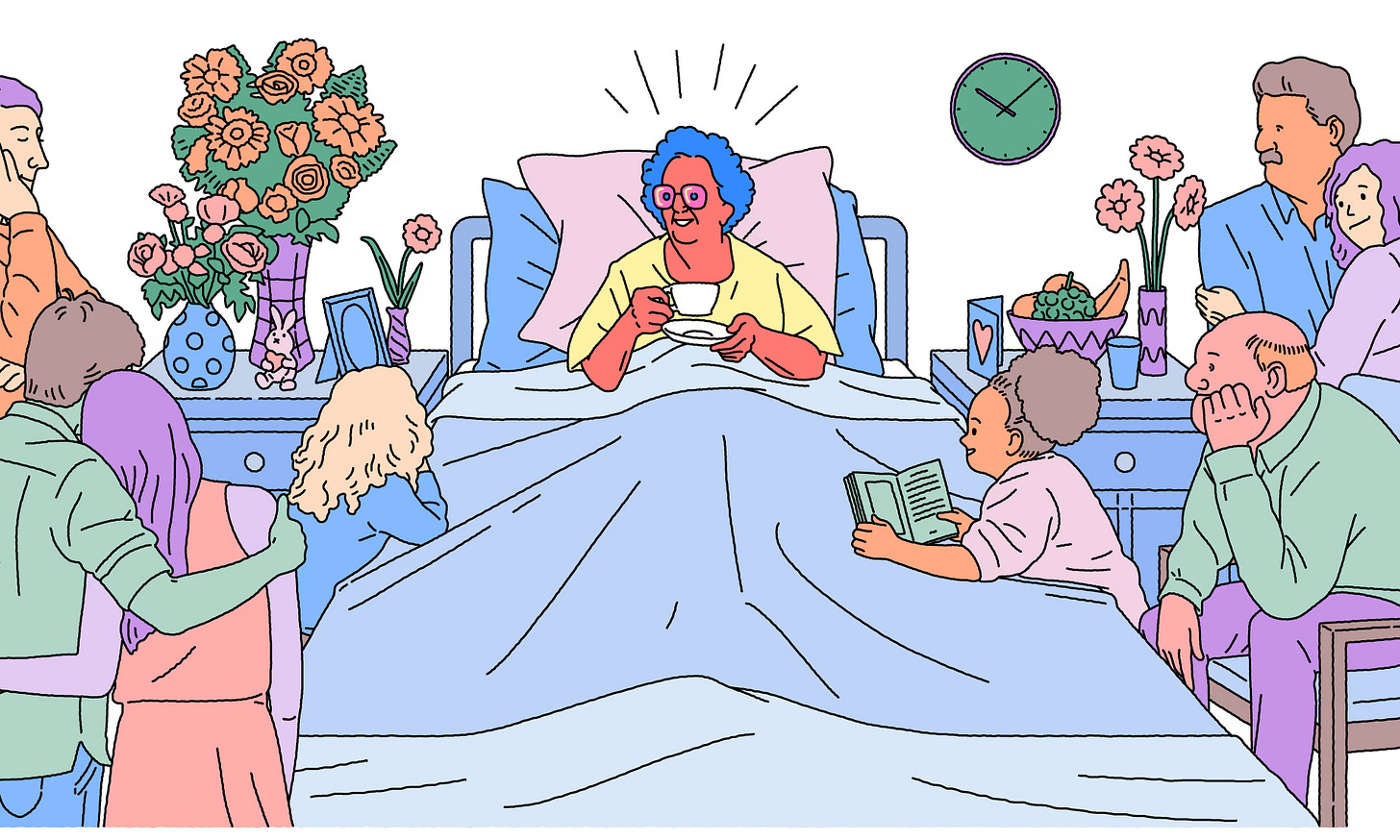My Alzheimer's Journey
Part 36 - Terminal Lucidity
A good friend sent me an article about terminal lucidity. This neurological phenomenon is fascinating. I did a lot of research later today about what is commonly called a rally or a surge.
Terminal lucidity is a surge of clarity and energy in a person with dementia who is dying. It doesn’t happen to everyone, in fact, most healthcare workers will only witness terminal lucidity a few dozen times over their career.
German biologist Michael Nahm published an article in the Winter 2009 issue of The Journal of Near-Death Studies (who knew this journal existed?!). His article had a rather lofty title, “Terminal Lucidity in People with Mental Illness and Other Mental Disability: An Overview and Implications for Possible Explanatory Models”. Dr. Nahm coined the name, terminal lucidity.
As I read Dr. Nahm’s article (yes, I read all twenty pages - just don’t ask me to repeat it - I have Alzheimer’s and my memory sucks), one passage really caught my attention. On page ninety, he talked about how many scholars, like Hippocrates, Cicero, and Galen believed that “the soul remains basically intact when the brain is affected by physical malfunction and disturbance of the mind.” Therefore, they believed that during and after death, the soul was “freed from material constraints regaining its full potential.”
Dr. Nahm wrote another article in 2011 reviewing documented cases of terminal lucidity. Written in the Journal of Gerontology and Geriatrics, he states that cases of terminal lucidity have been reported in medical literature “over the past 250 years, but has received little attention.”
One really fascinating case is from 1822. A boy at the age of 6 had fallen on a nail, that penetrated his forehead. He slowly developed increasing headaches and mental disturbances, including melancholia, memory loss, and hallucinations. At age 17, he experienced a brief period of lucidity, claiming to be pain-free, before suddenly becoming unconscious and dying minutes later.
The Cleveland Clinic says that “during terminal lucidity, a person may interact with their environment as they did before their disease made it harder for them to do so. An episode usually lasts anywhere from a few minutes to a few hours.”
Someone experiencing terminal lucidity may:
React to loved ones after being withdrawn and disengaged before
Speak coherently after previously being unable to communicate
Express wants and needs, like asking for a glass of water or a favorite food
Recognize people they’d forgotten, like old friends from a photograph
Recollect past experiences and eagerly recount these memories to others
Participate in a favorite activity, like singing or playing a musical instrument they haven’t touched in years
It may feel as if your loved one has returned to their “old self.” And briefly, you can connect with them in ways you thought you’d never get to experience again. Your loved one may be well enough to understand words of love and comfort you’ve been aching to share.
Yet, a lucid episode with a person with advanced dementia is generally a sign that death is near. There is no way to predict when death will happen; although, it is generally within days or weeks.



!